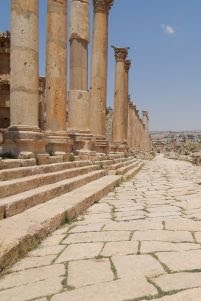- Aug 9, 2017
- 1,510
- 2,657
- Country
- Australia
- Gender
- Female
- Faith
- Christian
- Marital Status
- Private
But, that isn't what Paul said and that isn't what God did. Paul wasn't saved under false teaching. Paul didn't accept Jesus and thought Jesus and all those who followed Him were blasphemers of the only true and living God. While God certainly may have seen that Paul was earnest in his zealous love for God, He denied Jesus was who He said He was and therefore couldn't have been saved UNTIL his encounter with Jesus on the road to Damascus.
Paul also didn't say he was researching. Paul said "But I certify to you, brethren, that the Gospel which was preached of me is not after man. For I neither received it of man, neither was I taught it, but by the revelation of Jesus Christ." (Gal 1:11-12)
The way to live life in a manner that is truly pleasing to God is, as Paul shares in numerous places, "walk in the Spirit, not in the flesh."
i find this quite an interesting read especially near the end.
Reading Acts
Why did Paul go to Arabia?
12 months ago
One of the more tantalizing aspects of Paul’s early ministry is his “three years in Arabia.” In Galatians 1:17, Paul claims he did not go to Jerusalem immediately, but rather he went to Arabia for a period of time before returning to Damascus. This period of time is not spent in modern Arabia (i.e. Saudi Arabia), but rather the Nabatean kingdom on the east side of the Jordan. As Robert Smith states, the term “Arab” “could be used as a virtual equivalent of ‘Nabatean’ (1 Macc 5:25, 39, 9:35, and 2 Macc 5:8)” (ABD, 1:326).

Jeresh, from Summer
of 2013
Paul gives us some details of these events in 2 Corinthians 11:32-33. While Luke indicates the Jews were plotting against him, 2 Corinthains adds an important fact: The local guard was looking out for him as well. He specifically mentions Aretas IV, the client-king over the Nabateans. During the reign of Aretas IV (9 B.C. – A.D. 39) Nabatean culture was at a high point. The king was responsible for the development of Petra and developed a number of cities along the Petra-Gaza trade route. He controlled territory as far north as Damascus and as far south as northern Arabia. To a certain extent, Aretas IV was the “Herod the Great” of the Nabatean kingdom. Since Aretas IV died in 39, the latest date for Paul’s conversion is 36, if not earlier.
After an initial confrontation with Jews in the synagogue in Damascus, it is possible that Paul traveled from Damascus to other major cities in the Nabatean kingdom. This would have included cities of the Decapolis, perhaps even the modern site of Jeresh. It is possible he visited Petra since it was a major trading center at the time. He may have used Damascus as a “base” since there was already a community of believers there. We simply have no real facts to deal with for this three year period, other than he was living in that territory for three years and that he did not consult the other apostles until three years after his experience on the road to Damascus.
But as James Dunn observes, the more difficult question is why Paul spent three years in the Arabia. Paul makes an emphatic statement that after receiving a commission from the resurrected Jesus to be the “light to the Gentiles,” he did not “consult flesh and blood” but went to Arabia (Gal 1:7). Like Dunn, I think that Paul is simply following through on the commission he was given, to take the message of Jesus the Messiah to the Gentiles. The Nabatean kingdom provided him with ample opportunity to do just that.
Sometimes this period is described as a spiritual retreat into the desert, to work out the implications of his encounter with Jesus. I think that it is certain that Paul begins working through what “Jesus as Messiah” means, and what his role as the ‘light to the Gentiles” should be. He likely spent a great deal of time reading the scripture developing the material that he will use later in Antioch, then on the missionary journeys. But this period is not a monastic retreat! Paul is preaching Jesus and being faithful to his calling as the light to the Gentiles.
Categories: Pauline Literature
Tags: Arabia, Galatians, Paul, Pauline Literature
Leave a Comment
Reading Acts
WordPress.com.
Back to top
Upvote
0

